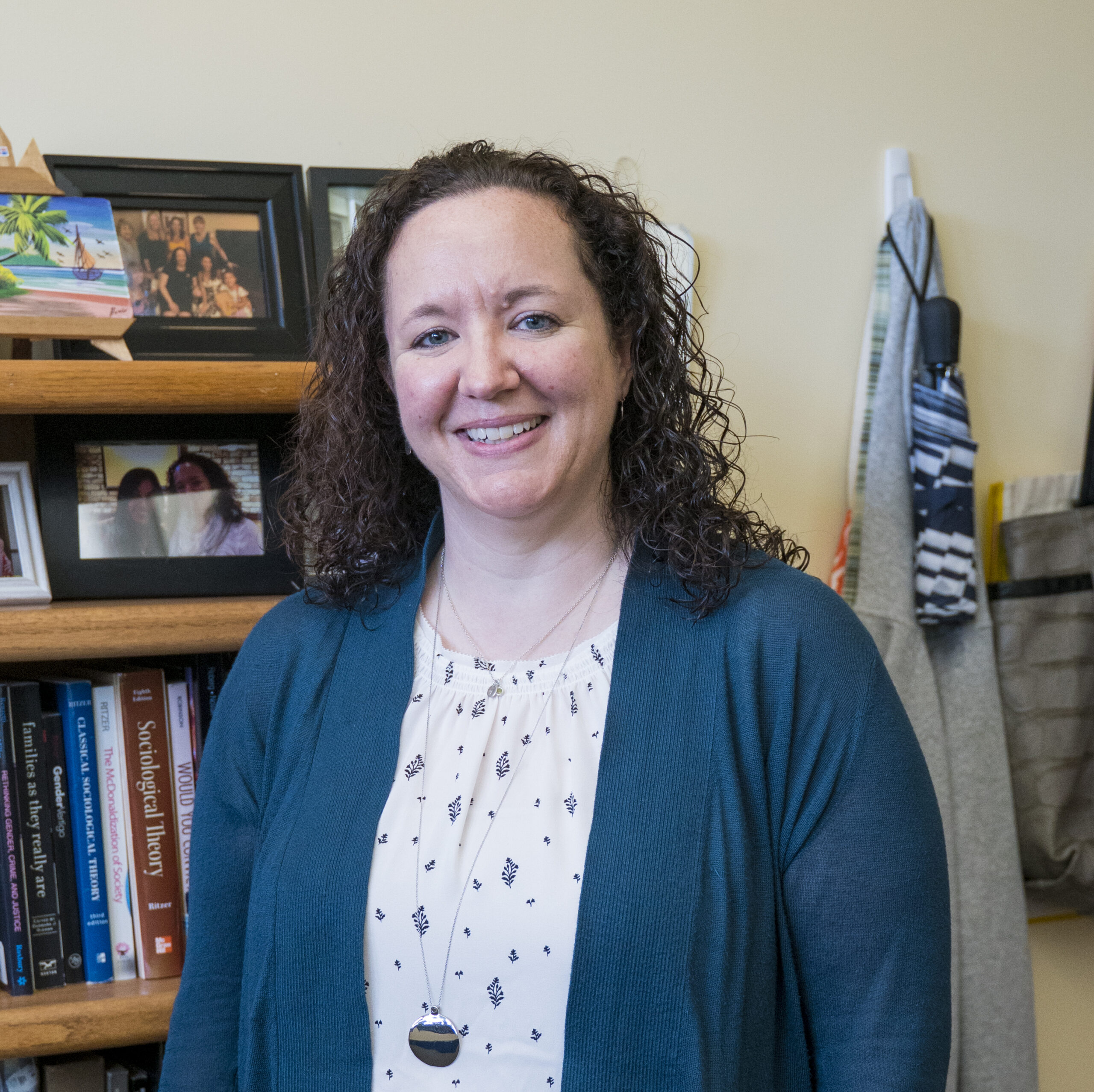URI Associate Professor Jill Doerner was largely responsible for the creation of the criminology and criminal justice major at URI, and remains one of it’s most popular professors. Photo by Ethan Pellegrino.
Through her earnest work and research with criminology and social inequalities, associate professor Jill Doerner has cultivated a classroom of enlightening opportunities at the University of Rhode Island.
Doerner received her Ph.D. in sociology from Bowling Green State University where she focused her studies on criminology and deviance. In 2008, she began teaching classes at URI and now incorporates issues of inequality into her courses, speaking to problems both within and outside of the criminal justice system.
During her time at URI, Doerner has taught a variety of classes and helped to develop CCJ 332: Juvenile Justice. The course teaches students about different sectors of the juvenile justice system in the United States.
Doerner was recently able to refresh this course by adding new content focusing on how different demographics are treated within the juvenile justice system.
“I was able to add some additional information about LGBTQ youth, which now is more of a well-developed area of research than when I taught the class before,” she said. “We also look at other groups in the juvenile justice system, specifically girls, who are not talked about a lot.”
In addition to this course, Doerner has been involved with CCJ 403: Gender, Crime and Justice which examines the sociological aspects of gender and crime. She has also worked within the Honors Program and four years ago ran the Honor’s Colloquium.
Doerner regularly teaches many of the introductory and capstone criminology and criminal justice (CCJ) courses, which has made her a well-known professor in the CCJ department. She also teaches many courses in the sociology department, especially those cross-listed between CCJ and sociology.
In 2014, Doerner was one of the leaders in the creation of the CCJ program, which now has nearly 500 students majoring in it. She served as director of the program until the spring 2020 semester and now works as the associate director of the Honors Program.
This year will be the first that the CCJ program will have its first full graduating class since it was developed. Doerner said that although it has been hard work, she feels lucky to have been a part of the team.
“It’s been a ride filled with lots of hard work, but it’s very rewarding to see how popular the major has become,” Doerner said. “We’ve had some really excellent students go through our program.”
When she is not teaching courses, Doerner’s research has focused on many different areas of study. Most recently, she has studied inequality in American classrooms, a subject that deviates from her typical interests in criminology.
Doerner said that this research is important since students must learn about inequality in the American school system to reveal the realities to those who might not recognize their privilege.
“Some students don’t have many experiences with others who are unlike themselves,” she said. “I hope to change their perspective on their position in society, and possibly how privileged they are in comparison to other students.”
In the past, Doerner has researched disparities between incarcerated individuals based on race, gender and age. She said that criminal justice policies are not always created equally across the prison population.
According to Doerner, minority communities often face harsher treatment than other prisoners. Her findings show that people of color face more severe discipline when incarcerated, even if their misdemeanors are the same as white criminals.
Older demographics also face detrimental effects of some criminal justice policies, according to Doerner.
“Research says that the older you get, the less of a risk you are to society,” she said. “So the question is, should they still be incarcerated? Do they actually need to be in prison, especially when it costs three times as much to incarcerate an older offender?”
Doerner believes that these topics are important for current students to study so that they become better-informed citizens.
She said that any changes to the criminal justice system will not be initiated without the work of young people.
“You guys are the future of the next generation, so we need you in order to change things that you don’t think should be happening,” Doerner said. “I feel like my job is to educate people about where [policies] came from, why we have gotten to this point and how we can change?”
Junior Emma North is a double major in political science and CCJ with minors in leadership studies and digital forensics. She took CCJ 274: Criminal Justice System with Doerner and also worked alongside her in the Honors Program.
North feels inspired after every interaction she had with Doerner and appreciates her genuine spirit.
“She’s so transparent and passionate, which is really apparent,” North said. “It’s clear that she really wants to see her students succeed. She has shown me that passion is the root of everything, and she makes her class something that everyone wants to be passionate about.”
North spoke highly about Doerner’s dedication to her work, especially as a new mother who still makes herself available as a mentor to students. She encourages all students to look into Doerner’s research and try to take one of her “illuminating” CCJ courses.





